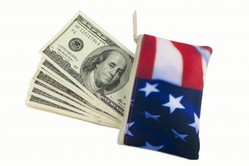CBO costs up supply chain security proposals for medicines
Phil Taylor, 25-Jul-2013
 A bill proposed by the US Senate that would introduce a lot-level traceability system for prescription medicines would exceed cost thresholds for the private sector, says the Congressional Budget Office (CBO).
A bill proposed by the US Senate that would introduce a lot-level traceability system for prescription medicines would exceed cost thresholds for the private sector, says the Congressional Budget Office (CBO).
The Pharmaceutical Quality, Security, and Accountability Act (S.959) - which also covers new rules for tailored, compounded drugs made within pharmacies - would authorise the FDA to collect and spend fees to cover the costs of implementing the new programmes. It was approved for debate on the Senate floor in May.
In its recently-published report, the CBO estimates that the net cost of implementation for the government after fees would be $31m between 2014 and 2018 - well within agreed thresholds - although the cost for the private sector would be higher.
Track-and-trace
The track-and-trace elements - which aims to tackle medicines counterfeiting cases such as the infiltration of fake Avastin into the supply chain last year - would bring in around $35m in fees from wholesalers and third parties that provide logistics services for a pharmaceutical manufacturer, wholesaler, or distributor, which would cover the estimated gross costs of licensing programmes.
In addition the CBO predicts that another $39m would be needed over the five-year period to cover activities such as establishing standards to enhance the safety and security of prescription drugs through the drug distribution system, a pilot project and at least three public meetings to promulgate regulations.
The impact on the private sector is hard to gauge, says the report, but as noted it expects the cost to pharmacies to exceed the $150m threshold laid down in the Unfunded Mandates Reform Act (UMRA) "in at least one of the first five years that the mandates are in effect."
The costs to pharmaceutical manufacturers are not estimated but could be considerable as in addition to fees they will have to maintain records of the transaction history of all drug products for six years, verify the transaction history and unique identifiers (UIDs) of drug products and identify suspect or illegitimate drug products and notify FDA and other stakeholders, whilst also maintaining strict records of illicit medicines.
Compounding pharmacies
The new rules for compounding pharmacies - prompted by the outbreak of fatal meningitis cases linked to the New England Compounding Centre (NECC) last year - would result in around $79m in collected fees between 2015 and 2018, which would largely cover the cost base.
The requirements would cost the thousand or so compounding pharmacies in the US around $20m a year in fees, but the CBO gives no estimate of the costs of complying with current Good Manufacturing Practices (cGMP).
It notes however that this "may be costly to implement, as some pharmacies may need to build or renovate existing facilities or purchase new equipment."

©
SecuringIndustry.com




 A bill proposed by the US Senate that would introduce a lot-level traceability system for prescription medicines would exceed cost thresholds for the private sector, says the Congressional Budget Office (CBO).
A bill proposed by the US Senate that would introduce a lot-level traceability system for prescription medicines would exceed cost thresholds for the private sector, says the Congressional Budget Office (CBO).